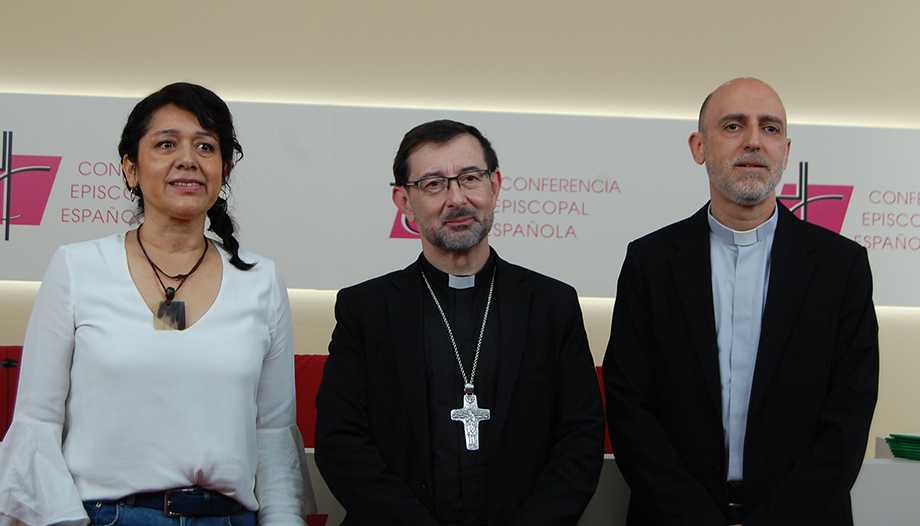 "We need effective, supportive and creative ways of welcoming migrants."
"We need effective, supportive and creative ways of welcoming migrants." Migration is not a problem, it is an opportunity
Migration is not a problem, it is an opportunityThe Cardinal Archbishop of Madrid. José Cobo; the director of the Migration Department of the EEC, Xabier Gómez; and Melania Flores, Peruvian, from the parish of San Millán y San Cayetano in Madrid were in charge of presenting the Pastoral Exhortation: "Welcoming and missionary communities. Identity and framework of pastoral care with migrants".
This document analyzes the reality of the numerous presence of migrants in Spanish society and proposes "to renew a concrete pastoral care with migrants that encompasses all the pastoral dimensions.
One out of every five people living in Spain are migrants. With this eloquent fact begins the Pastoral Exhortation: "Welcoming and Missionary Communities. Identity and framework for the pastoral care of migrants" presented at the headquarters of the Spanish Episcopal Conference. During the presentation, the Cardinal Archbishop of Madrid emphasized that it is a document that is the fruit of an exciting work.
In this regard, Cardinal Cobo recalled the 2007 document, which "has been the landing strip for other subsequent ones", but the "Magisterium of recent years incorporated very valid innovations for a new reflection" that have given rise to this new document for which, in addition, the delegates of the dioceses and the opinions of the bishops have been taken into account. It is about giving "a Gospel look at migration, a different look: that of the human being in the dignity that God has given him".
The Cardinal stressed that "the Church has a great opportunity: to show the world that integration is possible. In this sense, he pointed out that this document focuses on the migrant as an element of enrichment.
Valuing the migrant in the face of fear
Xabier Gómez, for his part, wanted to emphasize that this document addresses "the theme of identity. The identity of a Catholic goes through identification, with whom do I identify myself? For the director of the Migration Department of the EEC "the document is based on the recognition of the contribution of migrants to society and is an alternative to the discourse of rejection or fear".
"We need to rebuild links, rediscover the value of hospitality along with other activities with a future," added Gómez.
In relation to the growing percentage of migrants, not only among the faithful of the parishes but also among the clergy and religious life, Xabier Gómez has affirmed that "the future of the Catholic Church in Spain is of crossbreeding. This shows the catholicity of the Church and is good news".
On the side of the vulnerable
In relation to the document's denunciation of the CIEs in Spain, the director of the Migration Department of the Spanish bishops, Xabier Gómez, recalled that this is not a new petition and that the "Church has a mission of political advocacy, we have criteria that we share with society, and we come with a trajectory in which our position is expressed: always on the side of vulnerable people".
The presentation also included the testimony of Melania Flores, a Peruvian who lives in Spain and works with migrants in the Lavapiés neighborhood of Madrid through the projects "Educators in the street" and "First steps workshops" that are developed in her parish.
The document, which was approved at the last Plenary Assembly of the Spanish bishops, has a markedly practical character and is intended "to serve those who want to work with migrants and, in particular, to help them see each migrant, each person, as he or she is and welcome him or her".











